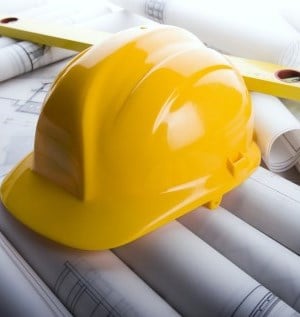A broker’s knowledge and experience is what gives them an edge over the directs – and in the arena of construction insurance, it can be a game changer.
“You get such diversification in the types of construction, depending on whether it’s heavy construction, commercial instruction, residential construction, infrastructure work, and so on,” said Ron Dekanich, president of Network Bonding and Insurance Services in Vancouver, B.C. “As brokers, it’s up to us to really try and find a suitable market that has the capacity and limits to handle small, medium and large contracts for that contractor.”
Building is booming
And the sky is the limit for brokers looking to expand their book of business.
Just last year, there was a 51.9 per cent increase in permits for houses and condos across Canada, making for a value in municipal permits issued of $6.96 billion, according to Statistics Canada. In Toronto alone, the value of permits issued in May of this year was $1.47 billion.
Claims concerns
Claims during, and after construction, are always a concern. Just last week, another glass pane crashed to the ground in downtown Toronto from a building notorious for such accidents.
And finding insurance to cover damage to the environment arising from construction projects has provided a new wrinkle.
“I think sometimes on the environmental side, certainly for bridge construction, it’s tougher,” said Dekanich. “I think you have to do a lot more homework in order to talk an insurer into taking on an environmental risk of that size.” (continued.)
#pb#
The Five Forms of Insurance
In addition to accounting for the various project sizes, insurer risk appetites, clients’ risk mitigation plans, brokers have a myriad of coverage options from which to choose.
Construction insurance policies come in the following five forms:
- Commercial General Liability (CGL) policies protect a third party from any damage caused to their property over the course of the construction. (They do not cover the project under construction.)
- Property insurance coverage covers the project under construction. It is triggered by physical loss or damage to the insured's own property resulting from an insured peril.
- A builders' risk policy, also known as a “course of construction” policy, usually covers all property on a project during the course of construction. It expires when construction is completed and the project is first used or occupied. It is usually purchased to cover off exposure due to a “your work” exclusion found in the CGL policies. The policy generally covers all property on a project in the course of construction, installation or repair, as well as temporary property located on-site such as scaffolding or forms.
- Professional liability insurance is usually specialized and tailored to a particular construction profession. It protects against liability arising from an error, act or omission in the insured's performance of professional services that leads to a loss.
- Wrap-up insurance is a single, project-specific policy that provides coverage for the owner, contractor and all subcontractors on a project. It is an alternative to each party on a project obtaining their own separate liability insurance policies, or having the contractor add the owner and consultants as additional insureds to its CGL policy. (continued.)
#pb#
Complicated contracts demand broker advice
As construction project elements are parceled out to different general contractors and project managers, the coverage becomes more complicated – which provides an excellent opportunity for brokers to become involved and offer advice.
It is a booming business that shows no signs of slowing down. The Toronto condominium construction market continues to flourish, and according to StatsCan data, 81 per cent of construction clients want to hear about beneficial coverage changes.
As a broker Yyou almost have to understand their business as well as they do, but the opportunities for brokers are there if you do your homework and learn the construction market. By knowing the client base, you can anticipate what they are going to need to jump ahead of the game.
.


